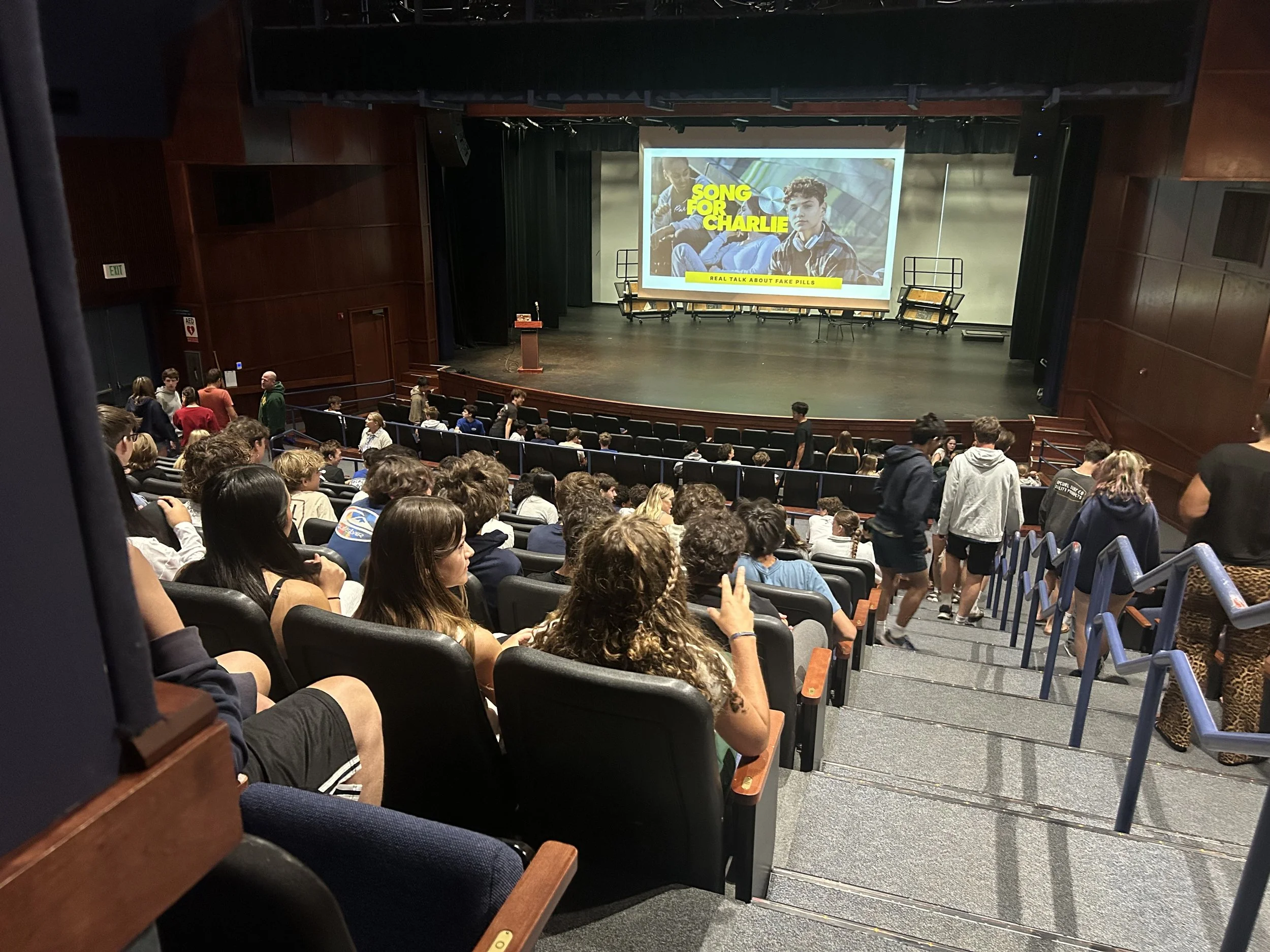“One death is too many:” Song for Charlie holds assembly at Acalanes to raise fentanyl awareness
By Eliza Khan and Federica Fregola, Staff Writers
According to the Center for Disease Control and Prevention (CDC), drug overdose deaths of people aged 14 to 18 years old increased by over 100 percent from 2019 to 2022. Out of these adolescent deaths, most involved the use of illicitly manufactured fentanyl, a powerful synthetic opioid that has found a large market in the U.S. over the past decade.
Song for Charlie, a national nonprofit organization dedicated to raising awareness about the dangers of counterfeit pills containing fentanyl, held an educational assembly led by Lauren Didier on Oct. 24 for the Acalanes sophomore class. The assembly took place in the Performing Arts Center (PAC) during academy, and served to inform Acalanes sophomores about the fentanyl crisis through a speaker-led presentation.
“A lot of the risks that exist now are fairly new, and a lot of families just aren't really up to speed on how prevalent fentanyl is out there, how easy it is for young people to get a hold of it, how deadly it is, and so it's really a newer crisis,” Didier said.
As many sophomores are learning in the current HSD drug and substances unit, fentanyl is a depressant, and is incredibly potent even in very small amounts. If unofficial sources lace other drugs with fentanyl, they can be deadly.
“With prescription medications, you want to make sure you're getting it from a trusted physician, from a trusted pharmacy, you're taking it as prescribed,” Didier said. “You're not sharing medications with other people.”
Didier, who lost her son Zach to fentanyl, expressed the importance of parents informing their kids on the dangers of fentanyl.
“I wasn't aware of the conversations that I needed to be having with Zach about this, because it was so brand new in our community with fentanyl and the counterfeit pills,” Didier said.
Teenagers who use social media can be particularly vulnerable to fentanyl exposure, since many sellers promote their products online.
“Be really careful of anything you see advertised online, because chances are whatever's being advertised online, it's being advertised as something that potentially it isn't,” Didier said.
Later in the presentation, Didier talked about how fentanyl is illegally laced into other pills because it is cheap to produce, and easy to falsify as a more expensive drug. While illegal manufacturers profit from selling fentanyl, the poor conditions at which it is produced make the content of each pill unpredictable, and potentially lethal.
“They're really good at manufacturing fake pills, the producers,” HSD teacher Brian Smith said. “It's an unknown and irregular and inconsistent quantity of fentanyl in all types of street drugs.”
Song for Charlie offered many students new information about drug use.
“I already knew that there is fentanyl and all these things inside these Percocets and stuff, but I didn't know that it was so widespread. I never thought, Oh, this is a recurring thing,” sophomore Avani Terani said.
The Acalanes Wellness Center has programs to help students who struggle with drug dependencies and want to stop.
“Sometimes people use drugs to cope or to ... self-medicate, so maybe there's something deeper going on that they need support with and ... the wellness place is a good place to help with that,” Wellness Center Intake Specialist Kiki Thomas said.
Acalanes teachers and administration are working towards ensuring drug-related resources are always available.
“We have phone numbers on our websites,” Smith said. “We have phone numbers around our room. There's tons of places to get help if you're struggling to find somebody on campus, anybody on campus you can talk to.”
The importance of fentanyl awareness extends to others within the community.
“We've got great resources at Song for Charlie that can get parents up to speak on what's going on, as well as tools that can help facilitate those conversations, videos that parents and students can watch together, and scenarios that you can talk about with your students,” Didier said.
Since organizations have begun their outreach, experts have observed trends toward less fentanyl overdoses in youth. However, many say that drug education about fentanyl in schools is still highly relevant.
“We luckily have data that suggest that numbers for youth and for teens are declining, but still, we are still losing young people,” Didier said. ”One death is too many, so it is positive to see that the numbers aren't continuing to rise at the really, horrible levels that they were rising in, say, from 2019 to 2022, and what we sort of take from that is that as more students are becoming aware of the dangers, we are keeping more students safe from this. So it is encouraging to see that education is making a positive impact.”

